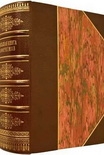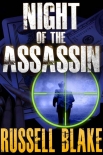The Gangster Clive Cussler (mystery books to read .txt) 📖

- Author: Clive Cussler
Book online «The Gangster Clive Cussler (mystery books to read .txt) 📖». Author Clive Cussler
“O.K.” Forrer nodded. “I get it. I feel like an idiot, too. So how do we separate servants from gods?”
Bell said, “Start with where they live.”
The Social Register turned up addresses for four—Arnold, Claypool, Culp, and Nichols. Cross-checking telephone directory numbers with company records revealed New York City addresses for the other three. The newspaper society pages turned up the names and locations of the country estates for six of the men. The same six had Newport summer residences. In both cases—country homes and seaside cottages—the one exception was Brewster Claypool.
“He’s from the South,” said Bell. “Attended law school in Virginia. Maybe he’s got a plantation down there.”
There were Claypools in Virginia, including Brewster’s brothers, but Claypool himself owned no plantation.
“Not even a town house in New York. He lives in the Waldorf Hotel.”
“Perhaps,” said Forrer, “Claypool prefers the simple life.”
“A bachelor’s life,” countered Bell. He himself lived at the Yale Club when in New York, in what Marion called his monastic cell.
“What if he lives in a hotel because he isn’t as rich as the others?”
Research came up with Claypool’s connections to boards of directors in steel, telegraph, and streetcars, but mostly as an adviser. He was, in essence, a Wall Street lawyer who worked as a lobbyist. Like a stage manager, Claypool stayed behind the scenes and avoided the limelight, which fit the definition of a fixer at the highest level.
Interestingly, Research came up with no pictures of Claypool, none of the engravings of prominent men found in the Sunday supplements, and no up-to-date photographs. He was definitely an offstage operator.
Bell, who always dodged cameras in the interest of investigating incognito, knew full well the threat of the accidental photograph. “Find out where he vacations. Some camera fiend must have snapped him with a Kodak . . . Meantime, if Claypool is our fixer, who does he fix for?”
“Pull is an ancient elixir,” Brewster Claypool drawled in a soft Virginia accent. “Pull sweeps aside obstacles. But this can’t come as news to a Van Dorn detective.”
“Wouldn’t a Wall Street lawyer prefer to go around obstacles?”
Brewster Claypool laughed. He was a little wisp of a man, wearing an exquisitely tailored pearl-gray suit, bench-made English shoes, and a blasé smile that concealed an all-seeing eye and a brain as systematic as a battleship’s centralized fire director.
“Excellent distinction, Detective.”
From the windows of Brewster’s office on the top floor of a building at Cortlandt and Broadway, Bell could see into the steel cagework of the Singer skyscraper under construction. The new building would block Claypool’s view of Trinity Church and the harbor long before it rose to become the tallest building in the world, but, at the moment, the view included a close look at ironworkers creeping like spiders on the raw steel.
Claypool said, “May I ask to what do I owe the pleasure of your presence? Your letter was intriguing, and I was impressed, if not flattered, when you quoted my notion that it is humiliating to confess ignorance of anything in Wall Street. Beyond that, I felt curiosity mingled with admiration, having caught wind of the Van Dorn success in retrieving a kidnapped child from the Black Hand. Extraordinary how your operatives found their way straight into the lion’s den.”
“That is not commonly known,” said Bell.
“I do not make a business of common knowledge,” said Claypool. “But tell me this. Have you noticed a sudden quiet in the Black Hand camp? Little activity other than small-potatoes attacks on hapless pushcarts.”
“Few peeps out of them lately,” Bell agreed, wondering why Claypool was showing off for him by establishing credentials beyond the canyons of Wall Street. “The Salata Gang got its nose bloodied by the Irish, and things have quieted down since.”
For a man who enjoyed boasting, Claypool appeared oddly immune to flattery. Suddenly blunt, he asked, “What can I do for you, Mr. Bell?”
“The Van Dorn Agency needs a man to provide inside information.”
Claypool looked genuinely puzzled by the offer of employment. “I’m sure that private detectives are better up in gangsters than I. My interest in the underworld is peripheral to my other interests.”
“This is not about gangsters.”
“About what, then?”
Isaac Bell pointed out the window. He traced with his finger the route of a crosstown street that began at the East River and ended at Broadway, hard against Trinity Church’s graveyard.
“Wall Street?” Claypool gave him a broad wink and joked, “Tread cautiously, Detective. President Roosevelt will clap you in irons.”
“What do you mean?” asked Bell. The slick Claypool did not strike him as recklessly bold. That he blithely dropped the name of Roosevelt suggested he was unaware of a plot against the President. If so, Bell’s “fixer hunt” had just hit as dead an end as Wall Street’s graveyard.
“The manipulation of insider information by Wall Street tycoons is among Teddy’s most despised bugaboos . . . But surely you know that.”
Bell said, “You don’t have to be a tycoon to manipulate inside information . . . But surely you know that.”
Still acting vaguely amused, Brewster Claypool geared up his Southern drawl. “Spoken as a private detective who believes he already has inside information—about me.”
“I do have such information,” said Bell. “We’ve learned a lot about you.”
“Why did you look into me?”
“I just told you. The Van Dorn Agency is seeking the services of an inside man. Diligent investigation into your ‘interests’ indicated that we would find that man in you.”
Claypool regarded the tall detective speculatively. “Services rendered by inside men are expensive.”
“But not as expensive as services performed by a tycoon.”
“Don’t rub it in, Detective. You’ve already made it clear that you know I am not a tycoon.”
“But I am among the very few who know that,” said Bell. “Most people, including people who should know better, assume that you are as great a magnate as your associates. They put you in the class of tycoons like Manfred Arnold, William Baldwin, John Butler Culp, Gore Manly, Warren D. Nichols, or even Jeremy Pendergast.”
If Claypool recognized an alphabetical list





Comments (0)